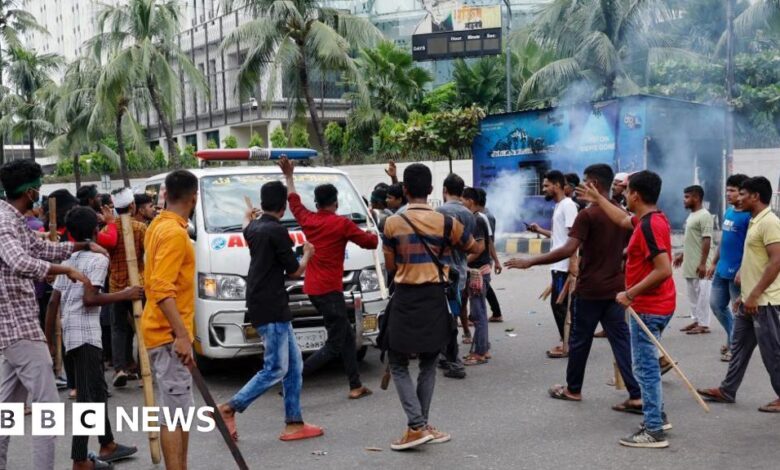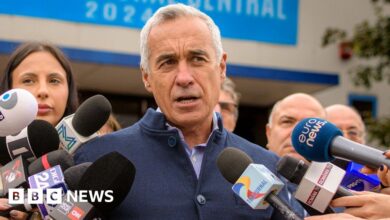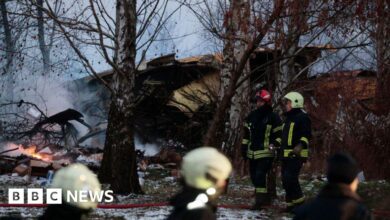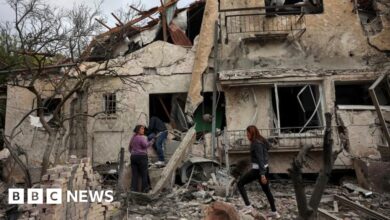Anti-government protests turn deadly in Bangladesh

At least 23 people have been killed in Bangladesh as clashes broke out between police and anti-government protesters demanding the resignation of Prime Minister Sheikh Hasina.
The latest round of tensions came as student leaders announced a campaign of civil disobedience against the government.
Police used tear gas and rubber bullets to disperse protesters in several places in Bangladesh. About 200 people were injured.
In the capital Dhaka, internet access on mobile devices has been halted, with some providers telling local media they had received orders from the government.
An official from the Bangladesh Telecommunication Regulatory Commission (BTRC) told BBC Bengali that 4G internet services in the Dhaka city area have now stopped, but broadband services will continue.
Without 4G and 3G, people cannot communicate via the internet on their mobile devices. The source did not say when internet service would return to normal.
Bangladeshi media and AFP reported that there were reports of deaths and injuries across the country, including in the northern districts of Bogra, Pabna and Rangpur.
A curfew was imposed from 18:00 local time (12:00 GMT) on Sunday. According to local media reports, the curfew will be in effect indefinitely.
Thousands gathered in the main square in the capital and there were incidents of violence elsewhere in the city.
In some places, supporters of the ruling Awami League reportedly clashed with anti-government protesters.
“The whole city has turned into a battlefield,” a police officer, who asked not to be named, told AFP news agency. He said a crowd of several thousand protesters had set cars and motorbikes on fire outside a hospital.
Students Against Discrimination, a group behind the anti-government protests, has called for the prime minister to resign.
The group announced a nationwide movement of disobedience starting Sunday, calling on people not to pay taxes or any utility bills. The students also called for the shutdown of all factories and public transport.
The protest that began with a demand to abolish job quotas in civil service last month has now morphed into a broader anti-government movement.
More than 200 people were killed in violence in July, many of them shot by police.
About 10,000 people are believed to have been arrested in a major crackdown by security forces over the past two weeks. Those arrested include opposition supporters and students.
The Awami League will also hold rallies across the country on Sunday.
The next few days are considered crucial for both sides.
“Sheikh Hasina should not only resign but also be tried for murder, looting and corruption,” Nahid Islam, one of the student movement leaders, told thousands at a rally in Dhaka on Saturday.
The protests pose a huge challenge to Ms Hasina, who was elected to a fourth consecutive term in January elections boycotted by the main opposition.
Last month, students took to the streets to protest against the granting of civil service positions to relatives of veterans of Bangladesh’s 1971 war of independence from Pakistan.
Most of the quotas have now been cut by the government following the ruling, but students have continued to protest, demanding justice for those killed and injured. They now want Ms Hasina to resign.
Ms Hasina’s supporters have ruled out the possibility of her resigning.
Earlier, Ms Hasina had offered unconditional dialogue with student leaders, saying she wanted the violence to end.
“I want to sit with the students who are protesting in the movement and listen to them. I don’t want conflict,” she said.
But the protesting students rejected her offer.
Last month, Ms Hasina called in the army to restore order after several police stations and government buildings were set on fire during protests.
Bangladesh Army Chief General Waker-Uz-Zaman held a meeting with junior officers in Dhaka to assess the security situation.
“The Bangladesh Army has always stood by the people and will continue to do so for the benefit of the people and in all the needs of the state,” General Zaman said in a statement issued by the Joint Services Public Relations Department.
Protests have resumed in several cities and the government is struggling to control a rising tide of anger over its initial response to the demonstrations.
Bangladeshi media said most of those killed in protests last month were shot dead by police. Thousands were injured.
The government argued that the police only opened fire in self-defense and to protect state property.




